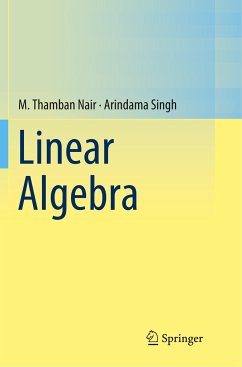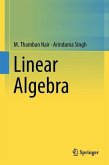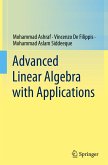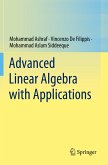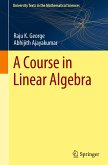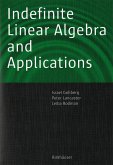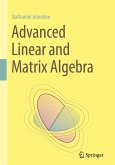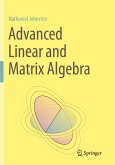This book introduces the fundamental concepts, techniques and results of linear algebra that form the basis of analysis, applied mathematics and algebra. Intended as a text for undergraduate students of mathematics, science and engineering with a knowledge of set theory, it discusses the concepts that are constantly used by scientists and engineers. It also lays the foundation for the language and framework for modern analysis and its applications.
Divided into seven chapters, it discusses vector spaces, linear transformations, best approximation in inner product spaces, eigenvalues and eigenvectors, block diagonalisation, triangularisation, Jordan form, singular value decomposition, polar decomposition, and many more topics that are relevant to applications. The topics chosen have become well-established over the years and are still very much in use. The approach is both geometric and algebraic. It avoids distraction from the main theme by deferring the exercises to theend of each section. These exercises aim at reinforcing the learned concepts rather than as exposing readers to the tricks involved in the computation. Problems included at the end of each chapter are relatively advanced and require a deep understanding and assimilation of the topics.
Divided into seven chapters, it discusses vector spaces, linear transformations, best approximation in inner product spaces, eigenvalues and eigenvectors, block diagonalisation, triangularisation, Jordan form, singular value decomposition, polar decomposition, and many more topics that are relevant to applications. The topics chosen have become well-established over the years and are still very much in use. The approach is both geometric and algebraic. It avoids distraction from the main theme by deferring the exercises to theend of each section. These exercises aim at reinforcing the learned concepts rather than as exposing readers to the tricks involved in the computation. Problems included at the end of each chapter are relatively advanced and require a deep understanding and assimilation of the topics.
"This textbook is suitable for a course on linear algebra for students of mathematics, sciences and engineering. ... the material of the book is mostly suitable for a two-semester course for student of mathematics and it is also a useful introduction to functional analysis." (Michal Zajac, zbMath 1414.15001, 2019)
"It is a very well written book. It is clear that Nair and Singh put a lot of work into the text to make the concepts elaborate and lively at the same time. This book can build the confidence of a student majoring in mathematics, science, or engineering by building their critical thinking skills and problem-solving skills - not to mention practice with writing proofs." (Peter Olszewski, MAA Reviews, March, 8, 2019)
"It is a very well written book. It is clear that Nair and Singh put a lot of work into the text to make the concepts elaborate and lively at the same time. This book can build the confidence of a student majoring in mathematics, science, or engineering by building their critical thinking skills and problem-solving skills - not to mention practice with writing proofs." (Peter Olszewski, MAA Reviews, March, 8, 2019)

